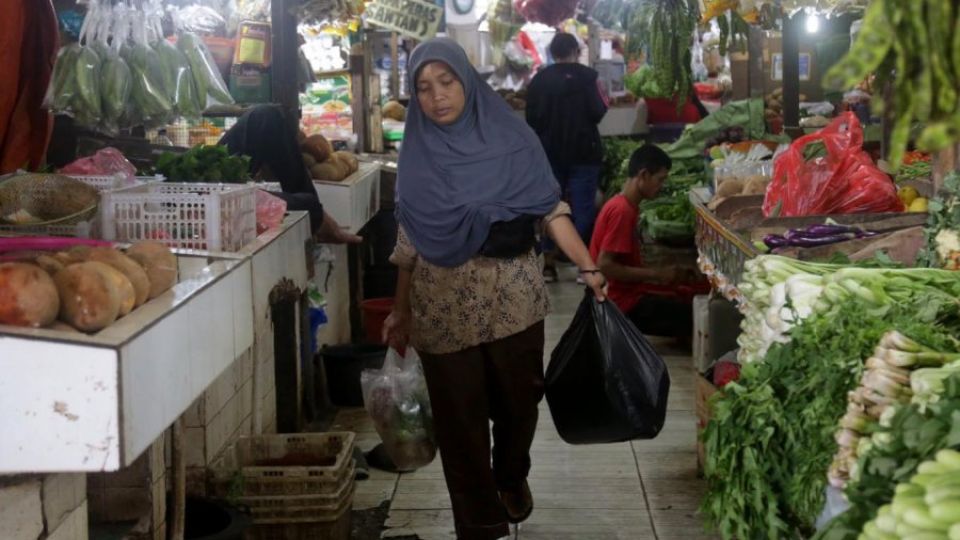January 3, 2025
JAKARTA – Inflation in Indonesia has dropped to the lowest year-end rate ever recorded by the country’s statistics agency since it began tracking consumer prices more than 60 years ago.
Statistics Indonesia (BPS) official Pudji Ismartini said in a press conference on Thursday that last year’s consumer price index (CPI) growth of 1.57 percent broke the previous record of 1.68 percent registered in 2020.
“What can be said to be the main factor” behind the low inflation rate was decreasing food prices, Pudji added.
The reading, however, was marginally higher than the 1.55 percent year-on-year (yoy) CPI growth rate logged in November.
Pudji explained that the low 2024 reading was partly owed to deflation in red chili, as prices of the ingredient nosedived 46.53 percent from December 2023 to December 2024. Bird’s eye chili also saw strong deflation as prices dropped 39.74 percent yoy.
Pudji said the 2024 figure was the lowest yearly reading the agency had taken since it started surveying consumer prices in 1958, back when Jakarta was the sole city in the survey. The assessment has since expanded to cover 150 cities across all provinces.
Gold jewelry was the top single driver of inflation last year, according to the statistics office, followed machine-made clove cigarettes and cooking oil.
The global spot market price of gold surged more than 27 percent in 2024, marking its largest annual gain since 2010, according to Reuters.
Core inflation, which excludes volatile food and energy prices as well as government-set prices, exceeded the headline inflation figure as prices logged by this indicator increased 2.26 percent over the course of last year.
For most of the past few years, core inflation in Indonesia remained below the headline figure, but that relationship flipped in September.
“2024 inflation is admittedly quite low. The main factor that affected it was the declining prices of food commodities that had jumped high in 2022 and 2023,” Pudji added.
Concurring, Bank Danamon economist Hosianna Evalita Situmorang told The Jakarta Post on Thursday that the base effect from high prices noted in 2023 made “inflation seem low” while “the monthly price movement is still normal”.
She denied that the low reading was correlated to weakening spending power.
“Despite low domestic inflation, we expect Bank Indonesia [BI] to remain cautious and prioritize currency stability,” said Hosianna.
Despite the record-low yearly increase, the latest CPI growth reading remained within the central bank’s inflation target range of 2.5 plus/minus 1 percent.
Inflation is generally the key factor considered by central banks in their monetary policy, yet BI slashed its benchmark rate just once in the course of 2024, namely in September, undoing an April increase, as the bank cited the need to protect the rupiah’s exchange value.
Hence, the rate at the end of the year was unchanged from a year earlier at 6 percent.
Read also: BI holds key rates to stabilize rupiah
Bank Permata chief economist Josua Pardede wrote in an analysis on Thursday that he had initially expected inflation to reach 3.12 percent in 2025 based on policies outlined in the government’s 2025 Financial Notes on state budget policy.
Said policies included the imposition of excise on plastics and sweetened beverages as well as an increase in the value-added tax (VAT) rate from 11 percent to 12 percent.
However, the government did a last-minute U-turn on the VAT increase and decided that the hike would only apply to certain luxury goods instead of being universal, as arranged in a 2021 law.
Read also: Govt walks back sweeping VAT hike on last day of the year
“The recent government announcement regarding the revision in the VAT rate policy may limit the inflationary impact of these initiatives,” said Josua, explaining that headline inflation this year may end up below 3 percent.


